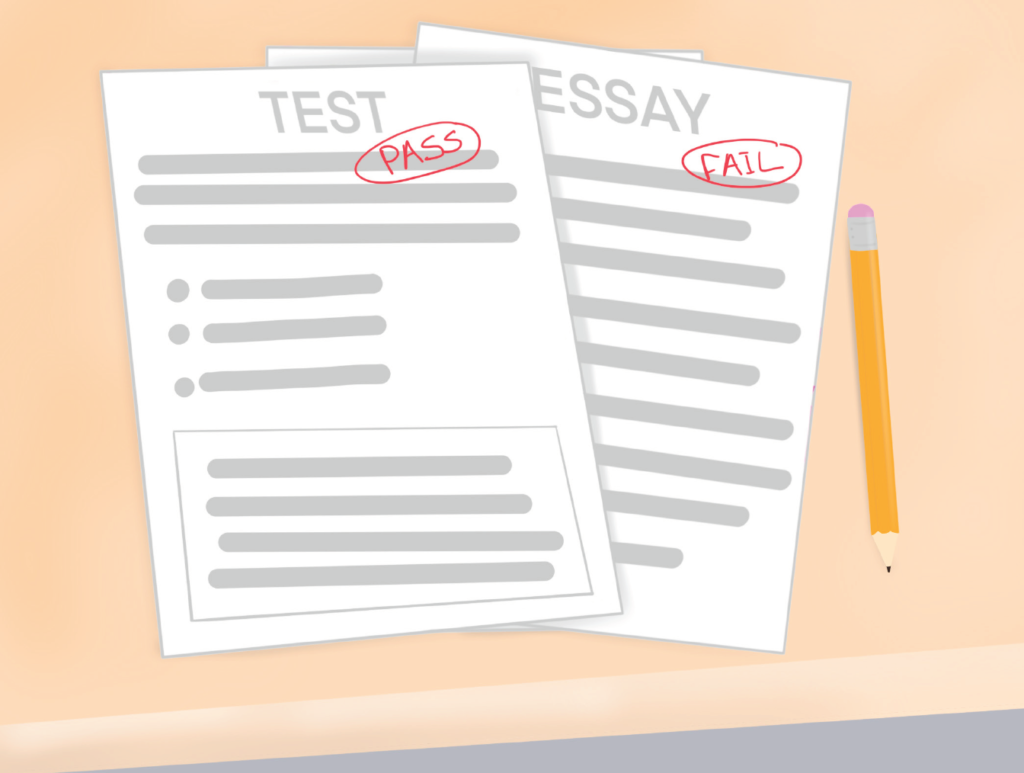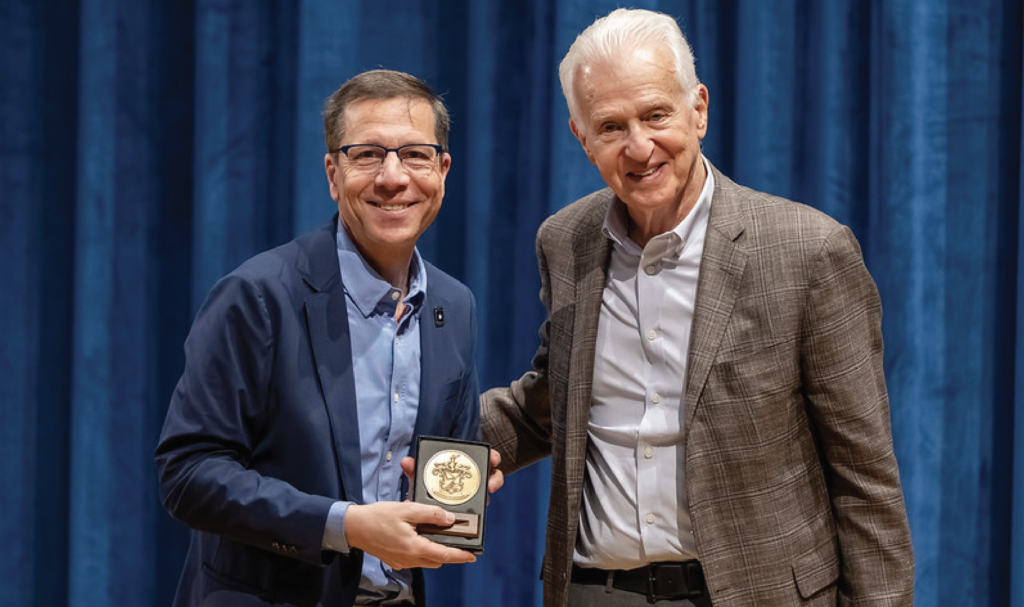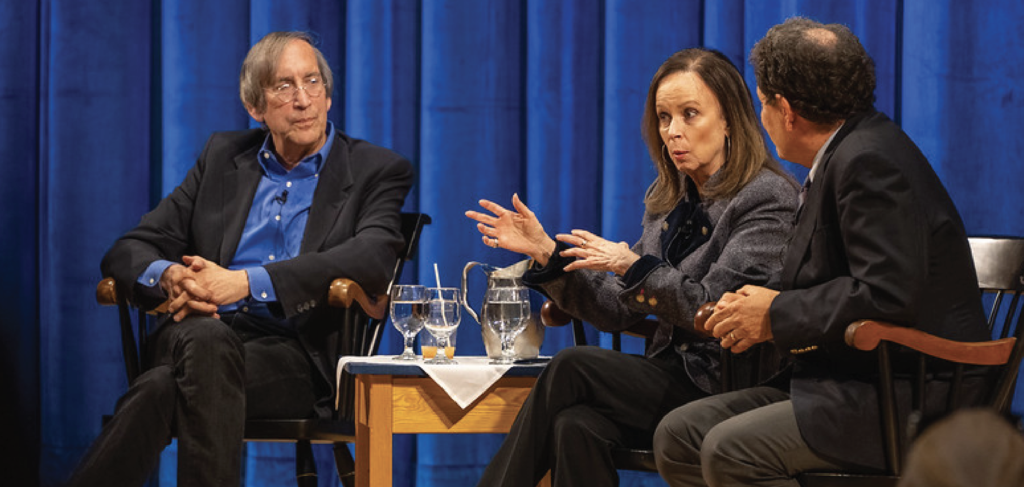
This term, teachers will be offering students qualitative rather than quantitative feedback on their work.
Graphic by Sesame Gaetsaloe/The Choate News
In a decision announced to the student body on March 24, Choate will move to a pass/D/fail grading system for the remainder of the school year. Students will not receive grades on their work, including quizzes, tests, papers, and projects. Teachers will assign a P, D, or F to their students at both midterm and end of term, and they will write end-of-term reports for students as usual, though those reports will not reference grades or points earned.
The administration views the new system as the fairest approach for a student body that, because of the ongoing Covid-19 pandemic, now learns solely through online, remote classes. Since leaving campus for spring break on March 6, Choate’s student body has been scattered across the globe. They are now enrolled in spring-term courses in a wide variety of household settings and time zones, and they are connecting to classes with differing degrees of internet accessibility.
In an email announcing the decision to the student body, Mr. Mike Velez, Dean of Students, wrote, “We believe this approach will best support student health and wellness given the necessary but unexpected shift to remote learning this spring, and the wide range of personal circumstances students will be navigating as they engage in their coursework from afar.”
According to Director of Studies Mr. Kevin Rogers the new grading system pivots on equity. “The advantage of the P/D/F system is that it allows us to more equitably manage issues that are attributable to the remote learning paradigm,” he said. “From time zone challenges to Wi-Fi access, we knew that students would face a host of different challenges this term.”
Mr. Rogers noted that the decision aims to acknowledge the diversity of student experience this term. “The number of unknowns that we faced suggested that we needed a grading system that would not penalize students who, for reasons beyond their control, might have their performance hampered,” he said.
A few weeks before the beginning of spring term, as peer schools began to modify their grading systems, many Choate students reached out to the School’s student council about implementing a pass/fail grading for the term. The student council then shared the students’ opinion with Mr. Velez for the administration to consider.
“The decision to move to a P/D/F grading system was reached after extensive conversations involving a host of different administrators including the Senior Officers, College Counseling, the Academic Department Heads and the members of the Dean of Faculty’s Office,” said Mr. Rogers.
Mr. Rogers acknowledged that the change might have not been favorably met by all students. “As for disadvantages, I know that some students will miss the opportunity to improve their GPA, which I can understand,” he said. “However, that is merely an external marker, and the real prize, the learning that should occur this term, is still there for them to seize upon. So, this disadvantage seems, to some extent, cosmetic.”
Many faculty members hope to take this as an opportunity for students and teachers to engage with the learning material without worrying about quantifying the work they complete. Ms. Amy Foster, the head of the History, Religion, Philosophy and Social Sciences Department, said, “I love that I don’t have to slap a grade on a paper. It also means teachers have to be really mindful about our communication with students — about what they’re doing well, and where they need improvement.”
Physics teacher Mr. Thomas Larsen added, “I hope that it encourages students to take a more pure and holistic view of their education without worrying about what grades they earn.”
The administration has instructed faculty to provide students with the same degree of feedback on their work as they would typically, and to demur if a student inquires what grade he or she would have earned on a particular assignment in a traditional academic term.




